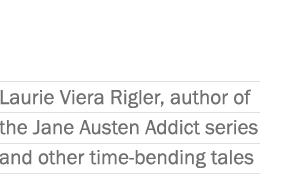I’m delighted to have been interviewed by the lovely and prolific fellow author and editor Christina Boyd of The Quill Ink, a wonderful site whose blog is packed with advice and insights for authors, and much more.
Enjoy!



I’m delighted to have been interviewed by the lovely and prolific fellow author and editor Christina Boyd of The Quill Ink, a wonderful site whose blog is packed with advice and insights for authors, and much more.
Enjoy!

We dream of them. We want to be them. We wish they were our best friend. Or our partner. And sometimes, we wish we could shake some sense into them.
They are Jane Austen’s heroines and heroes. Each of them has a flawed humanity, but each also has a unique and special quality—an Austen superpower, if you will.
Which is why they are so eminently relatable. Like them, we too are flawed. And like them, we have those same superpowers. They may be hidden away where we cannot see them, but they are there neverthless. All we have to do is believe.
How do we do that? By following the lead of Austen’s leading ladies and men, who dig down deep within themselves to access their own superpowers.
In this first of a series of posts, we turn to the heroine who is perhaps the most beloved of all: Elizabeth aka Lizzy Bennet of Pride and Prejudice.
I’ve always been a voracious reader. I read for pleasure, relaxation, inspiration, and insights. I’ve also discovered that for those of us who are writers, there’s a bonus feature baked into every great book: a master class on writing.
I enjoy exploring an author’s sensory descriptions, seamless transitions, witty dialogue, deft handling of POV, and judicious sprinklings of humor. I’m fascinated by the sleight of hand that plants foreshadowings and the skillful ways in which the writer made me lose sleep for turning pages late into the night. And, perhaps most important, I am always in awe of the keen eye that shines a light on the manifold facets of human nature.
Jane Austen is one of those authors with an unflinching eye for human nature at its best and its worst. So are Nick Hornby, Zadie Smith, J.K. Rowling, and Aurelia Haslboeck, whose debut novel, The Journeys of John and Julia: Genesis, exemplifies why I return to the works of these authors again and again. I re-read them for pleasure, inspiration, and to marvel at the sheer brilliance of their writing.
Recently, within the space of two weeks, I devoured the first three books in J.K. Rowling’s Cormoran Strike detective series, which she writes under the pen name Robert Galbraith. Here’s a brief clip of Rowling talking about the creation of her series:
“Resistance will tell you anything to keep you from doing your work. It will perjure, fabricate, falsify; seduce bully, cajole. Resistance is protean. It will assume any form, if that’s what it takes to deceive you. Resistance will reason with you like a lawyer or jam a nine-millimeter in your face like a stickup man. Resistance has no conscience. It will pledge anything to get a deal, then double-cross you as soon as your back is turned. If you take Resistance at its word, you deserve everything you get.”–Steven Pressfield, Do the Work: Overcome Resistance and get out of your own way